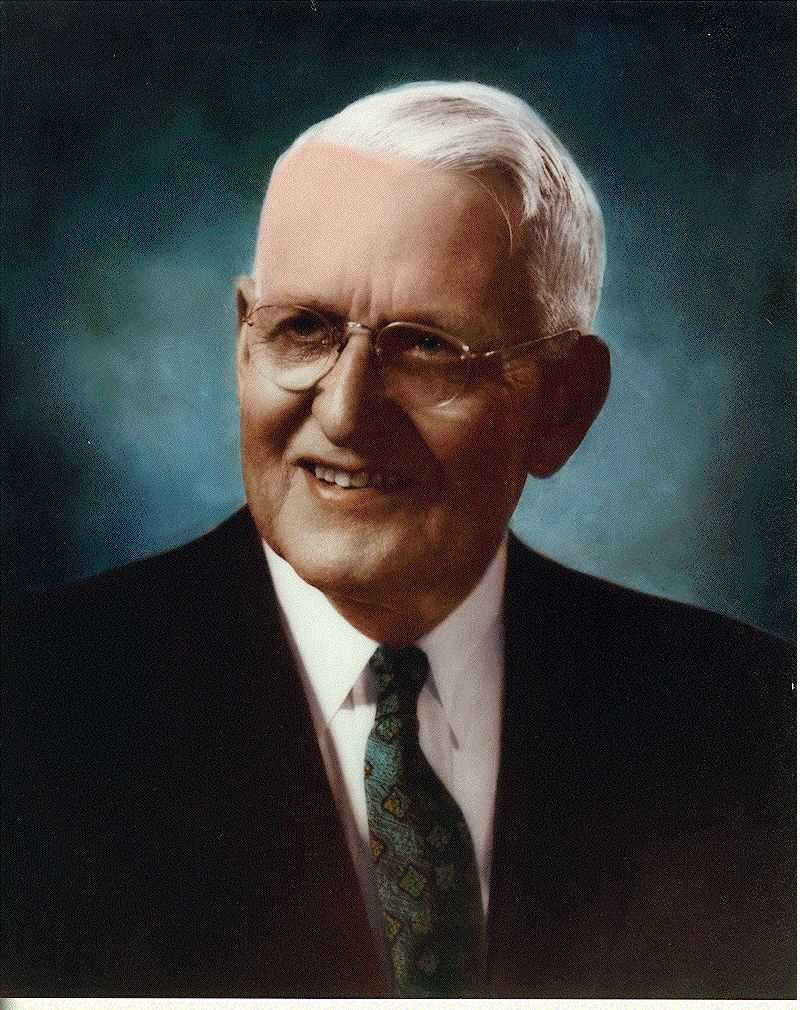Harvey Fletcher:Mormon Scientist
Harvey Fletcher was an American physicist credited with the invention of the audiometer and hearing aid. He was a brilliant investigator into the nature of speech and hearing. He was a member of The Church of Jesus Christ of Latter-day Saints.
Born on September 11, 1884, in Provo, Utah, Fletcher graduated in 1907 from Brigham Young University with a bachelor’s degree (he was the first physics graduate) and began his teaching career there. He received his PhD at the University of Chicago in 1911 and was the first physics student at that university to graduate summa cum laude. He studied under Robert A. Millikan and worked closely with him on research that resulted in the first measurement of the charge on an electron. Fletcher’s dissertation research was on methods to determine the charge of an electron. An agreement with Millikan, which Fletcher kept secret until his death, gave Millikan sole credit for the oil drop experiment and Fletcher full authorship on a related result for his dissertation. Millikan alone received the Nobel Prize for Physics in 1923, in part for this work.
After receiving his PhD, Fletcher returned to teach at BYU and was head of the physics department from 1911 to 1916. Western Electric Company of New York pursued him for five years and in 1916 he finally accepted their offer for employment and for what became Bell Laboratories until 1949.
Fletcher devoted much of his life to the accurate reproduction of sound. In 1933 he demonstrated realistic sound reproduction in an auditorium. Conductor Leopold Stokowski cooperated with him in a demonstration of stereophonic sound transmission of a live performance from the Philadelphia Orchestra in Philadelphia to Constitution Hall in Washington, D.C., where the sound was separated into three channels to achieve realism. They made more than 100 stereo recordings together. In February 2016, Fletcher was honored by the National Academy of Recording Arts and Sciences with a posthumous Technical Grammy Award for his work with Stokowski and the Philadelphia Orchestra.
His work at Bell Laboratories also led directly to other important advances: sound motion pictures, the first accurate clinical audiometers to measure hearing, the first electronic hearing aid, the development of the artificial larynx, improved telephone transmission, and sonar. He held more than 40 patents for acoustical devices and published more than 60 major scientific works.
Fletcher received dozens of awards and honors, including a Presidential Citation from Harry S. Truman and membership in the National Academy of Sciences. In 1949 he was elected an honorary fellow of the Acoustical Society of America, the second person to receive this honor after Thomas Edison. He was president of the American Society for Hard of Hearing, an honorary member of the American Otological Society, and an honorary member of the Audio Engineering Society. In 1924 he was awarded the Louis E. Levy Medal for physical measurements of audition by the Franklin Institute. He was President of the American Physical Society, which is the leading Physics society in America. In 1937 he was elected vice-president of the American Association for the Advancement of Science. He was also a member of the National Hearing Division Committee of Medical Sciences. He was given the Progress Medal Award by the American Academy of Motion Pictures, in Hollywood. For eight years he acted as National Councilor for the Ohio State University Research Foundation.
From 1949 to 1952 Fletcher taught at Columbia University, after which he returned to BYU (in 1954) where he directed research and helped to set up a new Department of Engineering and the College of Physical and Engineering Sciences. He also researched musical acoustics, working well into his nineties with others to separate each component in the complex web of sound produced by the piano, organ, and string and percussion instruments. In 2010, Fletcher was honored as the Founding Dean of the BYU College of Engineering, which is now the Ira A. Fulton College of Engineering and Technology.
In 1908, Fletcher married Lorena K. Chipman and they had one daughter and six sons. She died in 1967. Two years later he married Lorena’s sister Fern Chipman Eyring. After suffering a stroke, he died on July 23, 1981.
